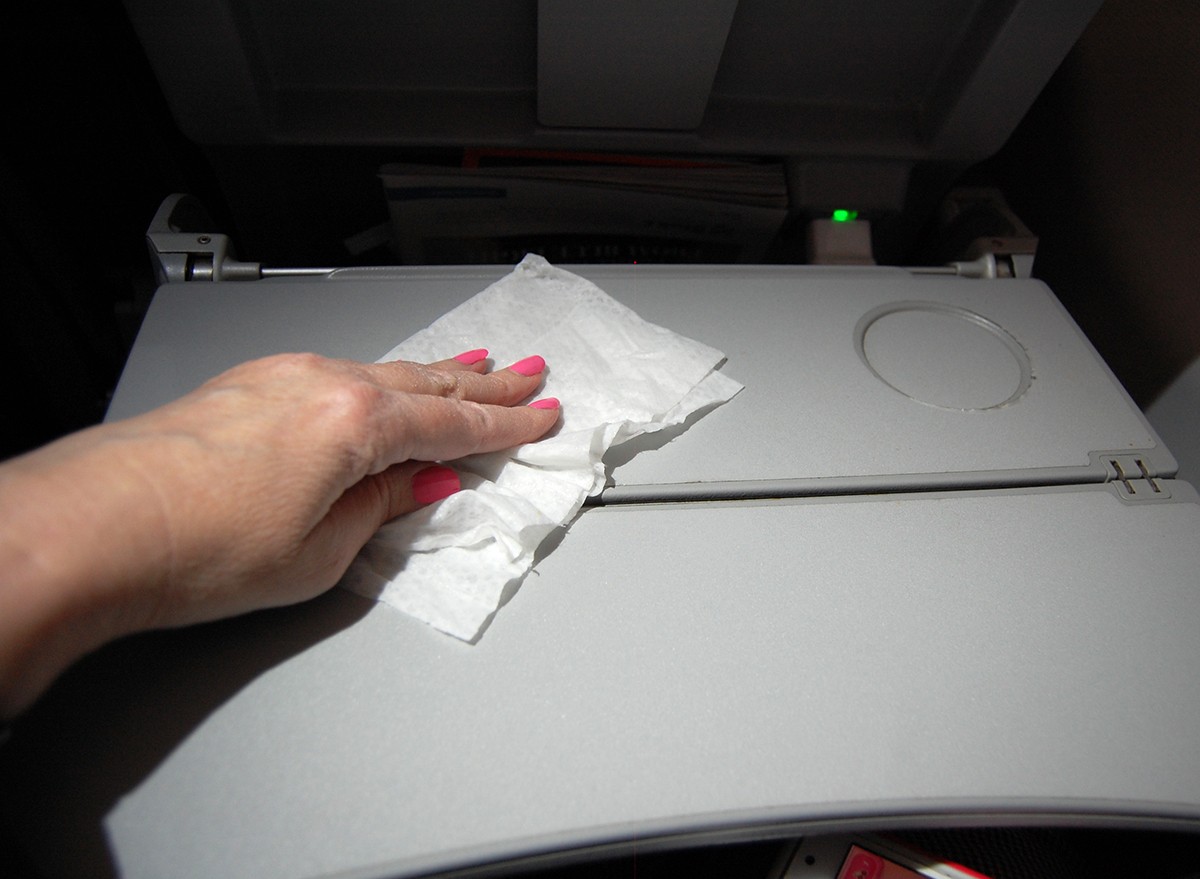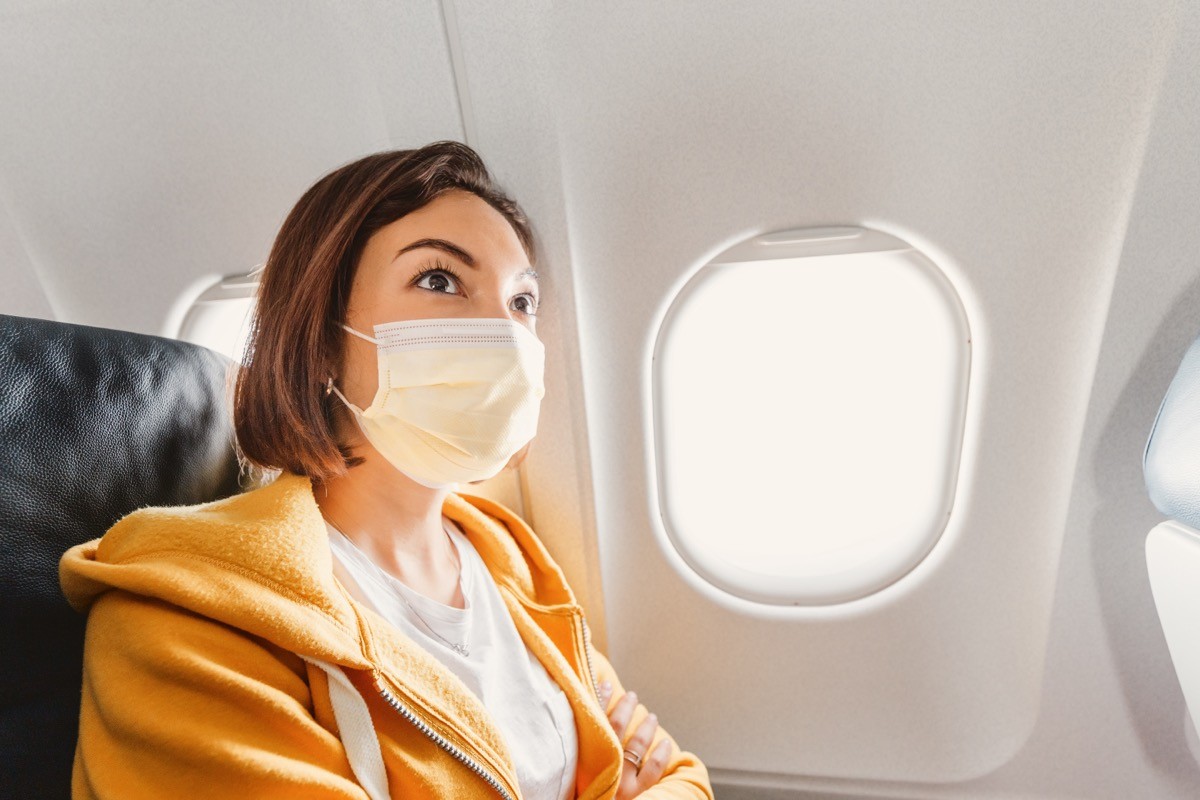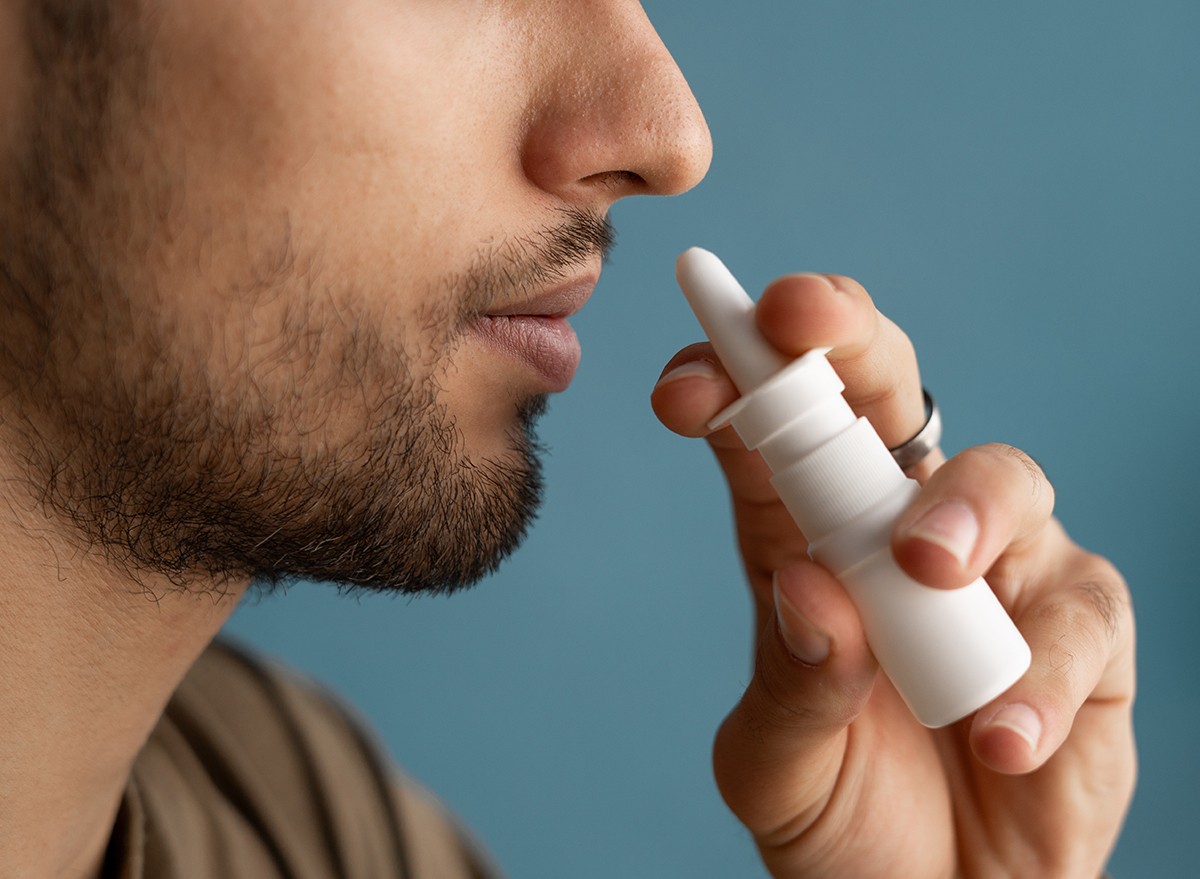Doctor Shares Easy Way to Protect Against Germs on Airplanes

Cold and flu season is upon us, but there are things you can do to help prevent picking up a nasty bug while traveling. “Airplanes not only create an environment that viruses thrive in,” Nicholas Testa, a Los Angeles-based emergency medicine physician and chief physician executive for the Southwestern Division of CommonSpirit Health, tells AARP. “They also make it easier to transfer germs and viruses from person to person.” Here are some simple ways to prevent picking up germs on an airplane, according to experts.
RELATED: 9 Germs You Encounter When You Travel.
Pick a Window Seat

A 2008 study shows the window seat is better than the aisle when it comes to preventing sickness. People sitting in the window seat are more protected from the coughing and sneezing going on in the aisle section. “The window seat has less traffic by it,” and therefore is less risky for spreading germs, Dr. Testa tells ABC News.
Wipe Down Armrests and Tray Tables

Many airlines do not clean the tray tables between each flight, which means it’s on you to protect yourself from germs. “The flu virus will live on a hard surface for about 24 hours,” Dr. Testa says. “They don’t have time to wipe every single tray station,” he added. “So intrinsically the bathroom is cleaner than out here.”
Don’t Be In a Hurry to Board

Wait until others have boarded so you’re not forced to be packed in with a large group of people. “All those people are clotted together in the boarding process; it’s far more likely that they’re going to transmit a virus to each other,” Dr. Testa says. “Just let the other people board. And give yourself a moment.”
RELATED: What a Nutritionist Does to Not Get Sick.
Wear a Mask

Wearing a mask can protect you and others, experts say. “When you cough or sneeze, you’re ejecting fine particles,” says Vicki Stover Hertzberg, PhD, FASA. “Other people near you can inhale them. They can get them on their hands. They can land on their tray tables.”
Turn On the Air Vent

Turn on the air vent to increase air circulation and prevent others from getting sick. “You’re sneezing into that draft of air, and it just immediately sucks it down to the floor,” Dr. Hertzberg says.
Use a Nasal Spray Every Two Hours

Using a nasal spray every two hours could help prevent you from getting sick on a plane. “One of the things we’ve noticed, particularly on airplanes, is that as soon as your mucous membranes, particularly in your nose and your mouth, start to dry out, we lose one of the most valuable defenses for preventing respiratory viruses,” Dr. Testa says.
Wash Your Hands!

Wash your hands with soap and warm water, and keep sanitizer on hand for when you touch door knobs, trays, etc. “One may be touching doors, doorknobs, seats along the way,” Dr. Lin Chen, president of the International Society of Travel Medicine and director of the travel medicine center at Mount Auburn Hospital, tells NPR.